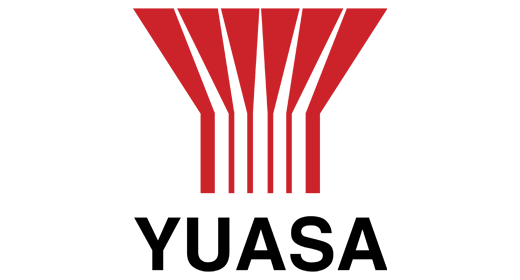UK's Growing Need for UPS: PSTN Switch-off & Energy Threats
As societies and economies grow more intertwined with technology, the need for a consistent and reliable power supply becomes ever more critical. In the United Kingdom–– a bastion of technological innovation and application – the demands for uninterrupted power supply (UPS) systems have seen a remarkable upswing. The reasons? An upcoming Public Switched Telephone Network (PSTN) switch-off and emerging threats to the UK's energy supply.
In this article, we'll delve into the dynamics of the UPS market, outlining why growth is surging and how this trend is likely to evolve. From the discontinuation of the PSTN to the shift towards decentralised renewable energy sources, various factors are propelling the UPS market towards new heights. Additionally, an increasing dependence on digital services, coupled with growth in specific sectors relying on UPS systems, also contributes to this growing demand.
Ready to explore the fascinating landscape of the UK's UPS market? Let's dive in!
Overview of the UPS Market
As technology continues to evolve at a rapid pace, our reliance on uninterrupted power supplies (UPS) is significantly increasing. From safeguarding crucial data in the healthcare sector to ensuring continuous operation of IT infrastructure in businesses, the UPS has indeed become a game-changer. Now, let's have a closer look at various aspects of the UPS Market in the UK, Europe, and globally.
Size and Growth of the UK UPS Market
The UK UPS market has been a force to reckon with in recent years. Notably, in 2021, its size was valued at a humongous USD 9.85 billion. Astonishingly, the growth isn't slowing down anytime soon. Market forecasts firmly assert that the UK UPS market is projected to reach a value of USD 14.30 billion by 2029. This astounding upsurge reflects the expanding needs and applications of backup power solutions in diverse sectors in the UK.
Importance of the UK in the European UPS Market
When we sift through the European UPS market, two countries conspicuously stand out - the UK and Germany. Combined, these two powerhouses account for roughly 38% of the total UPS market in Europe. As a pivotal cog in the European UPS market wheel, the UK plays a significant role in shaping the landscape of power supply solutions across the continent.
Global UPS Market Projection
By zooming out and looking at the bigger picture, we realign our focus towards the global UPS market. Today, economies worldwide are becoming increasingly digital, spurring an explosive demand for reliable power supply solutions. Consequently, the global UPS market size is expected to reach an impressive USD 22.14 billion by 2031.
But that's not all.
Extending beyond the broader UPS market, sub-segments such as the Data Centre UPS market and the UPS battery market are also drawing notable attention. Valued at $6.41 billion in 2022, the Data Centre UPS market is forecasted to reach $10.57 billion by 2029. Meanwhile, the global UPS battery market is set on a trajectory to reach $2.0 billion by 2032.
As such, it's becoming crystal clear that the UPS Market is on a roll, filled with immense potential. Where might it head next? Only time will tell. But for now, all eyes are set on the next big faceoff in the UPS landscape, aptly coined as The Great UPS Showdown.

Driving Factors for UPS Demand in the UK
As an integral cog in the functioning of the modern digital landscape, Uninterrupted Power Supply (UPS) systems are witnessing an upward push in demand in the UK. The sudden surge in demand can be attributed to various factors, some of which we're breaking down in this article: the impending PSTN switch-off, the move towards decentralised renewable energy, rising reliance on digital services, and the growth of industries utilising UPS systems.
Upcoming PSTN Switch-off
One key influence driving the demand for UPS systems in the UK is the forthcoming PSTN (Public Switched Telephone Network) switch-off scheduled for 2025. With the switch-off, legacy phone lines and services, including ADSL broadband, will no longer be in use, giving way to newer internet-based phone and communication systems that require uninterruptible power supplies. This massive technology revamp is pushing businesses and households alike to invest in robust UPS systems.
Shift to Decentralised Renewable Energy Sources
The UK's charge towards a green and sustainable future has compelled many to embrace decentralised renewable energy sources. However, with the irregular power generation of renewable sources comes the risk of power disruptions. UPS systems are thus increasingly used as backup power solutions, bridging the gap between demand and supply during power fluctuations, and contributing significantly to the rising demand for UPS systems.
Increasing Dependence on Digital Services
The pandemic has undoubtedly amplified our reliance on digital services, with everything from work to education transitioning online. Continuity and quality of these services are paramount, and any power disruption can materialise into substantial losses. UPS systems offer a solution, ensuring constant and smooth operation of digital services, underscored by an uninterrupted power supply.
Growth in Industries Using UPS Systems
Significant demand is also stemming from industries such as healthcare, education, and government services, where a power failure can have severe consequences. Moreover, the growth of data centres, which require a steady and uninterrupted power supply for smooth operations, is resulting in an upswing in the adoption of UPS systems. According to predictions, the modular UPS market is expected to grow at a CAGR of 9.2%, further highlighting the growth in this space.
As we look forward, the Future of UPS Technology seems to be intertwined with how we navigate the digital landscape. All these driving factors indicate one glaring fact: the demand for UPS systems is only set to increase, underscoring the crucial role they play in our digitally dependent lives.
The Impact of the PSTN Switch-off
The looming final cessation of Public Switched Telephone Network (PSTN) services holds multifaceted implications on various fronts. With most of the UK brewing for this unavoidable PSTN switch-off set to affect millions of enterprises and residents alike, understanding the potential benefits, challenges, and opportunities that this digital migration brings is crucial.
Benefits of Migrating from PSTN to Digital Networks
Overlaying the traditional voice-only service with high-speed digital networks ushers in a plethora of advantages. Top on this list is the improved energy efficiency, an often-underappreciated offshoot of the adoption of any new and advanced digital technology. By pushing for the digitalisation of networks, environmental benefits align seamlessly with the UK's net zero objectives.
Furthermore, migrating to digital networks not only enables faster, more reliable communication but also paves the way for more innovative solutions. It amplifies the capacity to integrate voice, video, and data services over the same network, fostering greater flexibility, scalability and paving the way to a myriad of advanced applications.
Challenges Presented by PSTN Discontinuation
With any transition this significant, there are unavoidable bumps along the road. One significant issue is the readiness of UK businesses for this technical evolution. Alarmingly, research exposes that only 54% of UK businesses are aware of the impending PSTN discontinuation. This lack of awareness and preparedness creates a steep learning curve and potential disruptions as the deadline approaches.
Moreover, as the role of backup power systems gains prominence in networks' resilience, businesses and residential units must ensure provisions for reliable power continuity. A crucial preparatory step that shouldn't be undermined.
Another challenge revolves around upgrading equipment. Transitioning from PSTN means swapping out old units for IP-compatible hardware, a process that could be resource-intensive, specifically for larger enterprises.
Opportunities Presented by PSTN Switch-off
However, as the popular saying goes, every cloud has a silver lining, and the imminent PSTN switch-off is no exception. This digital migration acts as a catalytic milestone in the nationwide rollout of full-fibre broadband. These fuels exceptional capabilities in terms of speed and system performance.
Potentially, the discontinuation of PSTN can stimulate innovation in communications technology. As digital networks take over, businesses are presented with an exciting opportunity to leverage new technologies, such as VoIP, cloud communication systems, and unified communication solutions. With the switch-off acting as a springboard, the telecommunications landscape in the UK and far beyond could experience an unprecedented transformation.
In essence, the upcoming switch-off of PSTN services, albeit challenging, serves as a defining moment in the evolution of the UK's digital communication infrastructure. Its benefits, challenges, and multitude of opportunities go a long way in defining the future of digital connectivity in the UK, one where energy efficiency and innovation reign supreme. Remarkably, this comes just in time for the nation as it endeavours to mark its footprint on the global digital map. After all, every evolution starts with the end of an era.
New Threats to the UK's Energy Supply
Today, more than ever before, the stability of the UK's energy supply is emerging as an area of grave concern. Ageing power generation infrastructure, dependencies on external power supplies, and even the very nature of our interconnected world have led to increased vulnerabilities in this critical area.
One of the most pressing issues is the looming risk of potential electricity supply disruptions due to power generation capacity issues. As power stations across the UK age, their efficiency can decrease, and the risk of operational difficulties or even outages can increase. At the same time, electricity demand is rising, leading to greater strain on the existing infrastructure.
Another notable threat linked to this is the UK's increased reliance on external power supplies. This dependency puts the UK's energy supply at risk in the event of diplomatic conflicts, natural disasters, or even technical issues in the supplying countries. As a result, the UK's energy supply becomes more vulnerable to events happening beyond its borders.
- The double threat of ageing infrastructure and dependence on foreign power sources could disrupt the UK's electricity supply.
- Increased electricity demand also adds to the risk by straining the existing system.
Organisations and small businesses need to counteract these threats by taking their own steps towards energy conservation. This could include strategies such as Maximising Energy Efficiency with the use of technologies, such as Uninterruptible Power Supplies (UPS).
"In the face of these potential threats, every kilowatt conserved can contribute to the stability of the UK's energy supply."
In the end, while the challenges facing the UK's energy supply are serious, they are not insurmountable. With concerted efforts towards energy conservation, infrastructure renewal, and diversification of energy sources, the UK can secure its energy future.
Conclusion
In the wave of these pervasive changes and looming threats to the UK's energy supply, businesses must prioritise the secure and continuous operation of their critical systems. Uninterruptible Power Supply systems pose as the much-needed safety net in these turbulent times, providing organisations with the much-needed assurance of operational continuity.
Secure Power, with its focus on superior three-phase UPS solutions and its diverse range of top-tier UPS brands, has indeed proven to be an industry leader when it comes to embedding robust power protection across business frameworks. With a commitment to first-class quality and unparalleled service, they have ensured that businesses remain powered, even in the face of unprecedented changes. To explore the extensive UPS options and services that we provide, please contact us.
Remember, the right UPS solution, coupled with diligent maintenance and technical support, can bolster your business resilience amid any power interruptions. Start your journey towards operational resilience with Secure Power, identifying the UPS system most compatible with your needs and ensuring you remain energised for the future.
Frequently Asked Questions
- What is the upcoming PSTN switch-off in the UK?The PSTN switch-off refers to the transition from traditional phone networks based on the Public Switched Telephone Network (PSTN) to internet-based communication methods, such as Voice over IP (VoIP) services. By 2025, the UK plans to shut down all PSTN services, making it essential for businesses to adapt to new communication technologies.
- Why are Uninterruptible Power Supply (UPS) systems in demand due to the upcoming PSTN switch-off?During the PSTN switch-off, businesses need to ensure uninterrupted power in their communication infrastructure, including the VoIP systems. UPS systems provide backup power in case of power outages or fluctuations, ensuring continuous operation and preventing the loss of important calls or data.
- What are the new threats to the UK's energy supply?The UK is facing new challenges to its energy supply, including the increasing reliance on intermittent renewable energy sources like wind and solar, potential cybersecurity threats, and the ageing infrastructure. These factors contribute to a greater need for reliable backup power solutions.
- Why are UPS systems important for businesses in the face of new threats to the UK's energy supply?UPS systems act as a safeguard against power grid failures and supply disruptions. They provide immediate backup power, giving businesses the necessary time to switch to alternate power sources or perform controlled shutdowns, minimising downtime and preventing data loss or damage to critical equipment.
- How do businesses choose the right UPS system for their needs?When selecting a UPS system, businesses should consider factors such as their power requirements, runtime needs during an outage, scalability, and the ability to handle the specific equipment they want to protect. Consulting with a reputable UPS provider can help businesses determine the best solution for their unique requirements.














